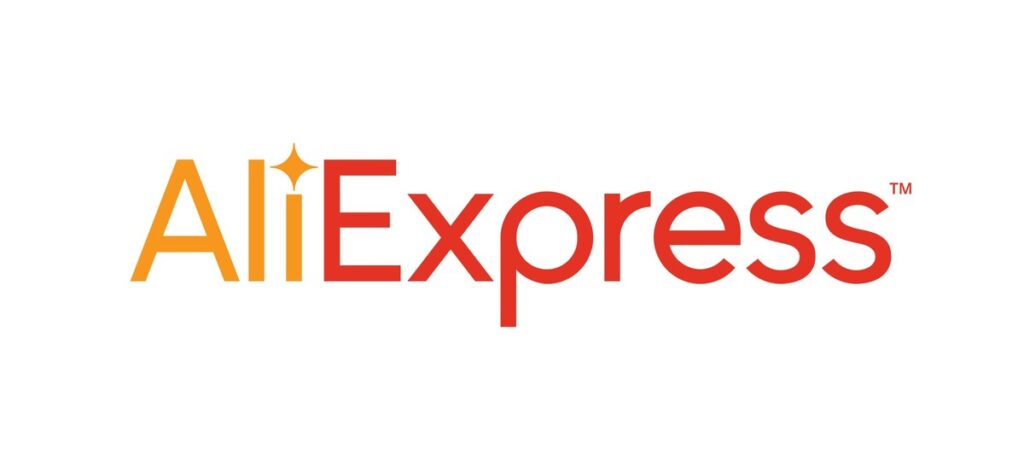In the vast realm of e-commerce, Alibaba has long stood as a prominent giant, offering a multitude of products and services. However, as the landscape evolves, so do the preferences and requirements of businesses and consumers alike. In this comprehensive guide, we’ll delve into a variety of alternative to Alibaba, exploring their features, advantages, and unique offerings. Whether you’re a business owner or a savvy shopper, understanding these options can help you find the perfect match for your needs.
Alibaba’s Features and Limitations: A Quick Overview

Alibaba has carved a niche for itself by providing an extensive range of products, connecting buyers and sellers from around the world. Its features include a vast product diversity that boasts an unparalleled selection of goods, ranging from electronics to textiles, catering to various industries and consumer needs. Additionally, Alibaba’s global reach allows businesses to tap into markets across continents, fostering cross-border trade. The platform’s ability to serve both businesses and individual customers with its B2B and B2C services provides tailored solutions for bulk orders and retail purchases.
However, Alibaba isn’t without limitations. Counterfeit concerns have challenged the platform, raising valid questions about product authenticity and quality. Moreover, language barriers and varying time zones can create communication barriers, hindering effective interactions between buyers and sellers. Furthermore, with millions of sellers vying for attention, standing out in a crowded marketplace can prove to be an intense competition for businesses.
Why Seek An Alternative to Alibaba?

As the e-commerce landscape continues to evolve, businesses and consumers are finding compelling reasons to explore alternative to Alibaba. Here are three key factors driving this quest for alternatives:
1. Diversification for Risk Management
In an ever-changing business environment, diversification is not just a strategy—it’s a necessity. Relying solely on one e-commerce platform, even one as established as Alibaba can expose businesses to unnecessary risks. Exploring alternatives provides businesses with multiple channels for growth and revenue generation. By spreading their presence across various platforms, businesses can mitigate the impact of any sudden changes in the market or the performance of a single platform.
2. Industry-Specific Focus
No two industries are exactly alike, and different sectors have varying needs and requirements. Some businesses require e-commerce platforms tailored to their industry’s unique characteristics. Alternative to Alibaba, which specializes in specific industries, can offer targeted solutions that cater to the nuances of those sectors. Whether it’s electronics, fashion, or niche products, industry-focused alternatives can provide businesses with tools and features that align more closely with their offerings.
3. Quality Assurance and Consumer Trust
In recent years, concerns about counterfeit products and overall product quality have been significant issues in the e-commerce space. Businesses and consumers alike are becoming increasingly conscious of the products they buy and the platforms they buy from. Exploring alternative to Alibaba options that prioritize quality assurance mechanisms, such as strict seller vetting processes and buyer protection policies, can help businesses maintain consumer trust and reputation.
4. Regional Preferences and Market Penetration
The world is not a uniform market, and consumer preferences vary greatly across regions. While Alibaba might be a global giant, there are regions where local platforms have a more significant presence and understanding of local consumer behaviors. For businesses looking to penetrate specific regional markets, alternatives that are deeply ingrained in those markets can offer a competitive advantage. These platforms often understand local trends, preferences, and regulatory environments, making it easier for businesses to connect with their target audience.
What Sets Alternative To Alibaba Apart?

As you embark on your journey to find the ideal e-commerce platform, here are 15 noteworthy alternative to Alibaba that offer unique features and advantages:
1. Amazon: The Global Retail Powerhouse
Amazon’s prominence as a global retail powerhouse makes it an attractive alternative to Alibaba. With its extensive reach and customer-centric approach, Amazon provides a platform that caters to both businesses and individual sellers. The platform’s Fulfillment by Amazon (FBA) service, in particular, simplifies logistics for sellers, allowing them to focus on their core operations while Amazon handles storage, packaging, and shipping.
2. eBay: The Auction Pioneer
eBay’s auction-style listings and diverse product categories make it a unique alternative for those seeking a different e-commerce experience. Unlike traditional fixed-price marketplaces, eBay‘s auction format allows sellers to set starting prices and let buyers bid on items, potentially resulting in competitive prices and exciting shopping dynamics. This dynamic appeals to bargain hunters and collectors looking for rare and unique items.
3. JD.com: China’s Retail Giant
For those focusing on electronics and direct sales, JD.com stands as a compelling alternative to Alibaba. As one of China’s retail giants, JD.com offers a vast selection of electronics and gadgets, making it a go-to platform for tech enthusiasts. The platform’s efficient delivery network within China ensures timely and reliable delivery, further enhancing the shopping experience.
4. Walmart eCommerce: Bridging Online and Offline
Walmart’s presence as a retail behemoth extends seamlessly into the e-commerce realm, making it an intriguing alternative to Alibaba. The platform’s online offerings combine a vast product range with the convenience of in-store pickups. This unique integration between online and offline shopping experiences provides customers with flexibility, as they can choose between home delivery or picking up their orders at a nearby Walmart store.
5. Shopify: Empowering Online Entrepreneurs
Shopify’s rise as an e-commerce platform has been marked by its user-friendly interface and commitment to empowering online entrepreneurs. As an alternative to Alibaba, Shopify enables businesses to create their online stores with ease, even if they lack technical expertise. The platform offers a range of customizable templates, tools for managing inventory, and features for processing payments, making it an attractive choice for startups and small businesses.
6. Rakuten: Japan’s E-Commerce Leader
Rakuten’s holistic approach to e-commerce sets it apart as an alternative to Alibaba. Beyond traditional online retail, Rakuten offers a wide array of services, including e-commerce, travel bookings, digital content, and more. This diversification provides shoppers with a unique and engaging shopping experience that goes beyond simple product purchases.
7. AliExpress: Alibaba’s Retail Arm
While AliExpress is a part of the Alibaba Group, it serves as an alternative by catering to smaller businesses looking to access a global customer base. AliExpress offers a wide array of products at competitive prices, appealing to budget-conscious shoppers. This platform’s focus on retail sales allows small businesses to reach a vast audience without the need for extensive marketing efforts.
8. Taobao: China’s Online Marketplace
Taobao, also under the Alibaba Group umbrella, has a distinct focus on the Chinese market. Its diverse offerings and engaging social features cater to the preferences of Chinese consumers. Taobao’s unique blend of e-commerce and social networking creates an immersive shopping experience, encouraging users to discover products through social interactions and recommendations.
9. Newegg: Tech and Electronics Focus
Newegg’s specialization in electronics and technology products positions it as a go-to alternative for tech enthusiasts and professionals. With a wide range of computer hardware, software, gadgets, and accessories, Newegg caters to consumers looking for the latest technological innovations. The platform’s user-friendly interface and detailed product descriptions make it easier for shoppers to find products that match their specific needs.
10. MercadoLibre: Latin America’s Choice
For businesses targeting the Latin American market, MercadoLibre emerges as a leading alternative to Alibaba. The platform’s strong presence in the region provides unique opportunities for businesses looking to tap into the vast consumer base of countries like Brazil, Mexico, and Argentina. MercadoLibre’s localized approach and understanding of regional preferences make it a strategic choice for expansion into Latin America.
11. Flipkart: India’s Leading E-Commerce Platform
In the bustling e-commerce landscape of India, Flipkart holds a position of prominence as an alternative to Alibaba. The platform’s deep understanding of the Indian market and extensive product range make it a top choice for Indian consumers. Flipkart’s commitment to affordability, combined with its localized offerings, resonates with a diverse range of shoppers across the country.
12. Groupon: Deals and Discounts
Groupon’s unique approach to e-commerce centers around deals and discounts, setting it apart from traditional retail platforms. As an alternative to Alibaba, Groupon connects consumers with local businesses offering discounted products, services, and experiences. This model appeals to shoppers seeking value and variety, and it allows businesses to attract new customers and boost their visibility.
13. Etsy: Handmade and Vintage Treasures
Etsy’s niche in handmade, vintage, and unique products distinguishes it as an alternative to Alibaba. Artisans, crafters, and creative entrepreneurs find a platform where they can showcase their one-of-a-kind creations. Etsy’s marketplace fosters a sense of community and craftsmanship, appealing to shoppers who prioritize supporting independent makers and finding personalized items.
14. Bonanza: Unconventional Finds
Bonanza’s focus on quirky and unconventional items positions it as an alternative that caters to unique tastes. Sellers on Bonanza offer a wide array of products that range from quirky gadgets to vintage collectibles, making it a treasure trove for shoppers looking for distinctive finds. The platform’s user-friendly interface and emphasis on individuality set it apart in the e-commerce landscape.
15. Tmall: Premium E-Commerce in China
Tmall, also under the Alibaba Group umbrella, serves as a premium alternative to Alibaba, showcasing high-end brands and products within China. The platform’s focus on quality and exclusivity appeals to discerning consumers seeking luxury and prestige. Tmall’s curated selection and premium shopping experience create a space where brands can engage with affluent Chinese consumers.
Factors to Consider While Choosing the Perfect Alternative To Alibaba

As you weigh your options and navigate the diverse landscape of e-commerce alternatives, consider the following key factors:
1. Product Fit
The first step in finding the perfect alternative to Alibaba is to ensure that the platform aligns with the types of products you offer or intend to purchase. Some platforms have a strong presence in specific categories, making them more suitable for certain industries.
2. Geographic Reach
While some platforms have a global reach similar to Alibaba, others might focus on specific regions or markets. Evaluate whether the platform operates in the regions that are most relevant to your business goals.
3. Seller and Buyer Protection
Counterfeit products and buyer/seller disputes can undermine the trust and credibility of an e-commerce platform. Look for alternatives that have robust measures in place to protect both sellers and buyers, ensuring a safe and transparent trading environment.
4. Fees and Pricing Structure
Understanding the fee structure and associated costs is crucial, especially for businesses aiming to maximize profits. Compare the fees of different platforms to determine which one aligns with your budget and revenue expectations.
5. User Experience and Interface
A user-friendly interface can significantly impact your ease of doing business on the platform. Consider the platform’s design, navigation, and tools for managing your products and orders. A well-designed platform can streamline your operations and enhance the overall shopping experience for your customers.
Conclusion: Navigating the E-Commerce Landscape
In a rapidly evolving e-commerce world, finding the right platform is key to success. While Alibaba remains a behemoth, these alternatives offer diverse solutions tailored to varying needs. By understanding their unique offerings and carefully evaluating your requirements, you can make an informed decision that aligns with your business goals and helps you thrive in the competitive e-commerce landscape.









